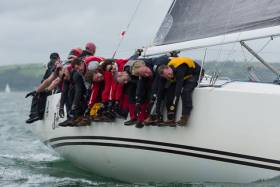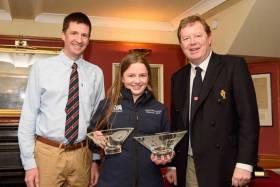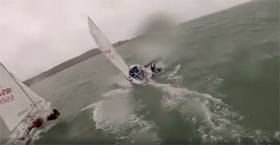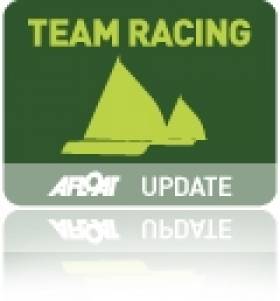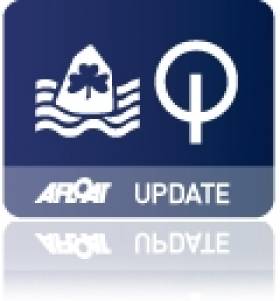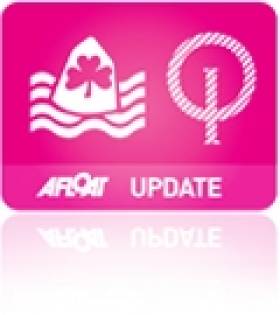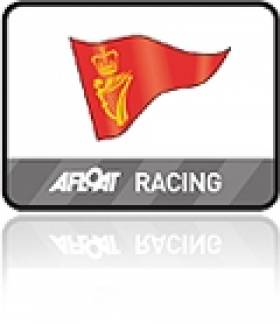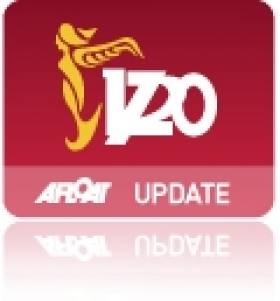Displaying items by tag: Royal Cork
An early end to a gale-lashed ICRA National Championships series at the Royal Cork Yacht Club didn't stand in the way of John Maybury's Joker 2 from successfully defending his Division 1 title and lifting the trophy for the third consecutive season. The Royal Irish YC winner was one of five titles decided over the weekend that saw a prudent race management decision not to continue racing even inside the shelter of Cork Harbour this morning.
"I honestly hadn't given any thought to the hat-trick," admitted Maybury. "But now that we've won it, it's fantastic!" Joker 2 is already the ICRA Boat of the Year for its successful 2016 season and the national title for 2017 will make the J109 a benchmark for the remainder of the year.
"It may have been a small fleet but the pedigree of the competition was excellent," commented Joker 2's tactician, Olympic veteran Mark Mansfield. Maybury was the only successful defender at Crosshaven over the three days with new national champions in all other classes.
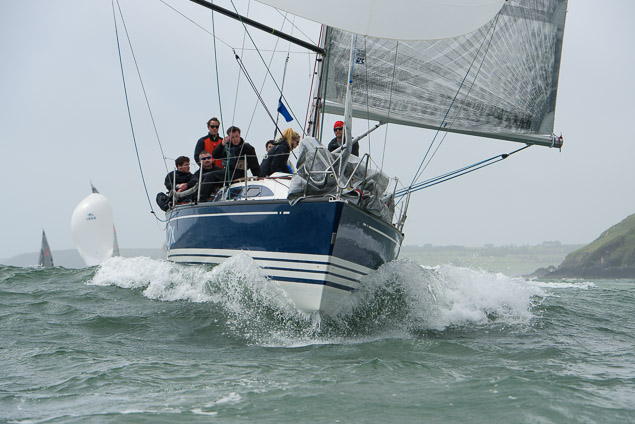 Howth Yacht Club's Ross McDonald on Equinox won the Division 2 national title Photo: Bob Bateman
Howth Yacht Club's Ross McDonald on Equinox won the Division 2 national title Photo: Bob Bateman
Straight wins for Paul Gibbons Quarter-tonner Anchor Challenge delivered a convincing win in the ten-boat Division 3 where Howth Yacht Club's Anthony Gore Grimes was the first runner-up on Dux. However, clubmate Ross McDonald on Equinox won the Division 2 national title, taking over from fellow Howth sailor David Cullen on Checkmate XV after gear damage on Saturday ended his defence.
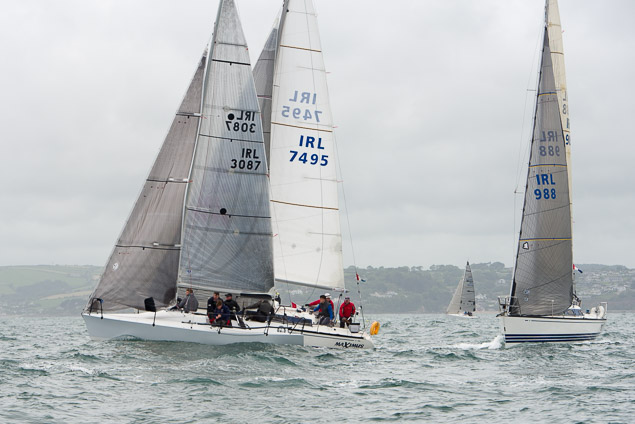 Straight wins for Paul Gibbons' Quarter-tonner Anchor Challenge (IRL 3087) gave him the Division 3 title. Photo: Bob Bateman
Straight wins for Paul Gibbons' Quarter-tonner Anchor Challenge (IRL 3087) gave him the Division 3 title. Photo: Bob Bateman
Breaking the past-form of Cork/Dublin national winners, Daragh McCormack from Foynes Yacht Club celebrated his newly-acquired J24 Stouche with the Division 4 national title. The 12-fleet was the largest at the ICRA championship this year with the J24 class accounting for nine of the boats and all seven top places.
 Daragh McCormack's Foynes Sailing Club J24 Stouche was the Division 4 national title winner. Photo: Bob Bateman
Daragh McCormack's Foynes Sailing Club J24 Stouche was the Division 4 national title winner. Photo: Bob Bateman
After the sad loss of Scottish entry Inis Mór on delivery to Cork a week ago, the depleted Division 0 saw a thrilling match-race series instead between local Robert O'Leary at the helm of Tony Ackland's "We had great fun, real match-racing. They gave us a good run and in only one race did both boats finish more than four boat-lengths apart," O'Leary said while predicting a re-match at the Sovereigns Cup in ten days time and Volvo Dun Laoghaire Regatta in July.
Meanwhile, the results from Saturday also stood for the White Sails fleets with Denis and Anne-Marie Murphys’ Grand Soleil 40 Nieulargo topping Division A under ECHO handicap while Clodagh O'Donavan’s Beneteau 35s5 Roaring Forties won Division B.
After a weather-lashed second day, principal race officers Jack Roy and Peter Crowley again opted to race both fleets inside Cork Harbour for the final day. But in spite of strong sunshine, westerly winds gusting to gale force kicked up a heavy chop even inside the harbour so the decision was made to abandon the series with the five races already successfully sailed.
"The ICRA championships this year were as much a test of racing skills as seamanship for everyone who participated - the 2017 champions are worthy winners," said ICRA Commodore Simon McGibney. "Clearly, the sport has issues to address including the fixtures conflict and small fleets. But ICRA will consult with our sailors in the coming months to find solutions so that we can deliver an exciting championship at a great venue - Galway Bay in August 2018".
ICRA prizegiving photos are here
Topper Winter Champs at Royal Cork Yacht Club Dominated By Northern Ireland Sailors (Photo Gallery Here!)
Erin McIlwaine from Newcastle in Co Down leapfrogged overnight leader Conor Horgan of Royal Cork Yacht Club to take the win at the inaugural Topper Winter Championships held at Crosshaven in Cork Harbour this weekend writes Bob Bateman.
Erin also took the Ladies prize from a fleet of 29 boats. In the 4.2 fleet, Lewis Thompson of Donaghadee and Ballyholme counted six straight wins in his division.
Given the rain over much of Europe, Cork was very lucky with the weather, frosty mornings giving way to clear days with light north westerly breezes.
Four races were sailed on Saturday leaving just two to be completed on the Sunday and here competitors had to contend with a rain squall during the morning.
Royal Cork Bids For 2020 IRC Europeans
#RORC - Royal Cork Yacht Club is bidding to host the IRC European Championship once again in 2020 after a successful inaugural event during Volvo Cork Week this July.
Royal Ocean Racing Club Commodore Michael Boyd made the announcement at the prizegiving ceremony as he unveiled Marseille as the host venue for the second annual championship over the first two weeks of July 2017.
In 2018 the event will move to Cowes on the Isle of Wight and the 2019 championship is tentatively scheduled for Scheveningen in the Netherlands.
Boyd confirmed that an application had been received from the Royal Cork to host in 2020, which also marks the club's tricentenary, and that RORC decision-makers "hope to respond very soon".
"Looking forward to Marseille, I would point out that the Royal Ocean Racing Club has strong links with French yachting, especially UNCL, and we are sure that IRC European Championship in Marseille will be a superb event," added Boyd.
420 Helmsman Goes Overboard in Schull Training Mishap
Champion youth sailor Harry Durcan of Royal Cork took a swim during heavy weather training at last week's 420 dinghy training camp in Schull, West Cork. The near miss between the two 420s was captured on video and can be seen below.
Following on from the Schull session, the next 420 training will take place in Cork Harbour on March 5th. The training will be led by Ross Killian, ISA National Coach with an assistant coach on the water. Cost will be €50 per sailor/€100 per boat for the weekend, which will go ahead subject to a minimum of 4 boats.
1720 Sportsboat Europeans Photos From Royal Cork (Day Three)
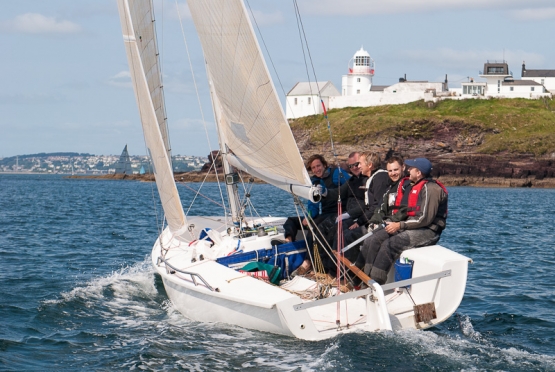
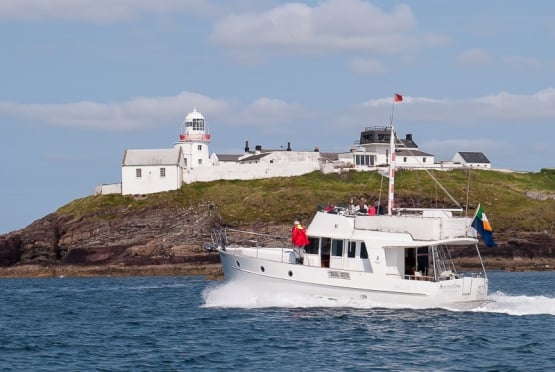
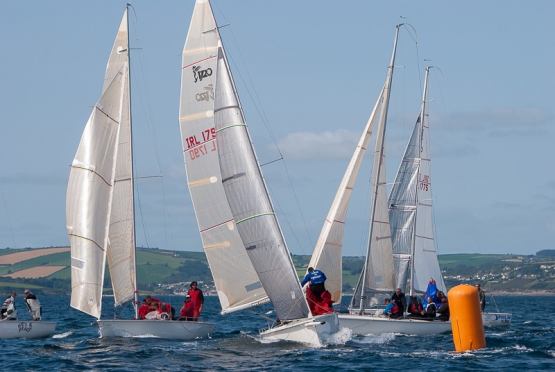
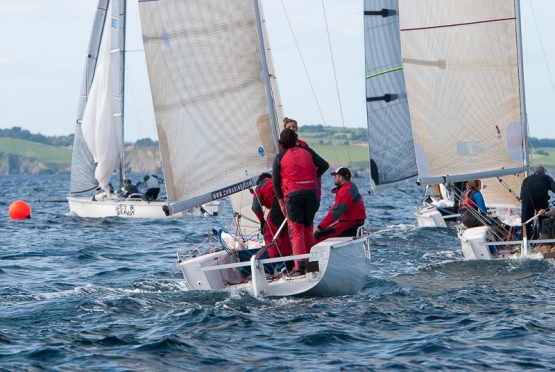
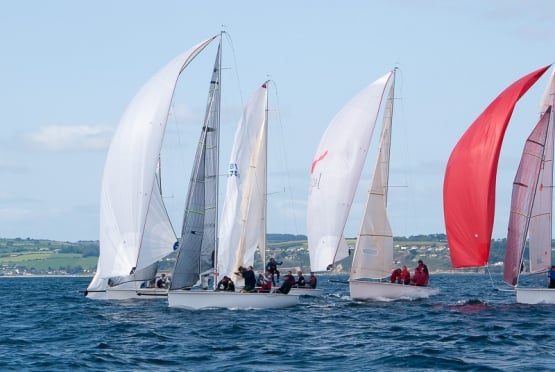
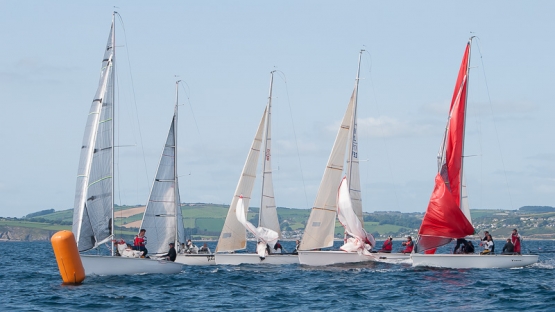
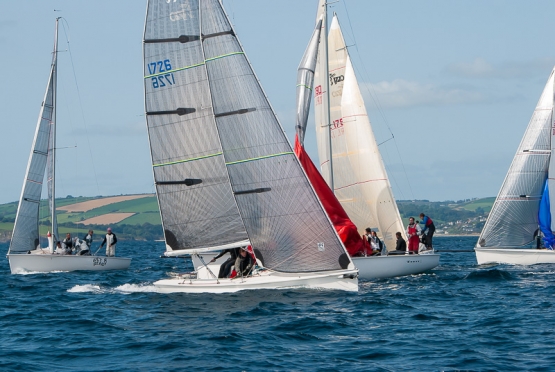
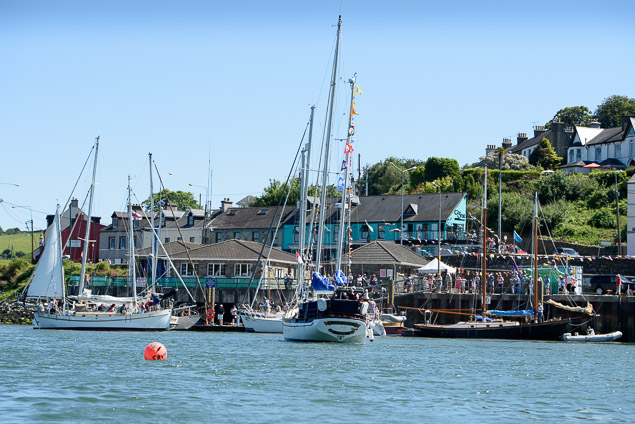
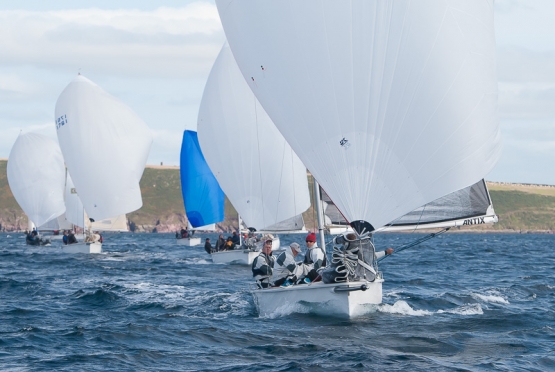
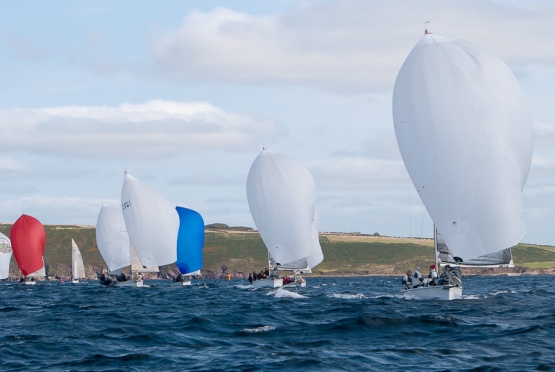
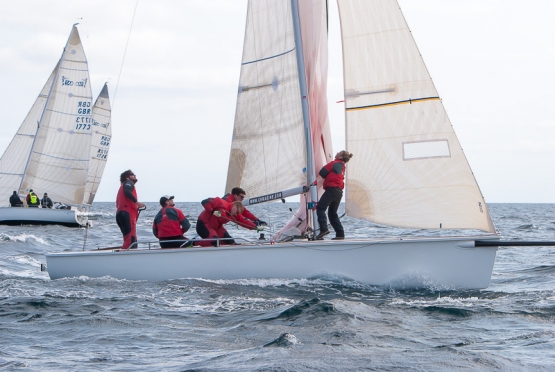
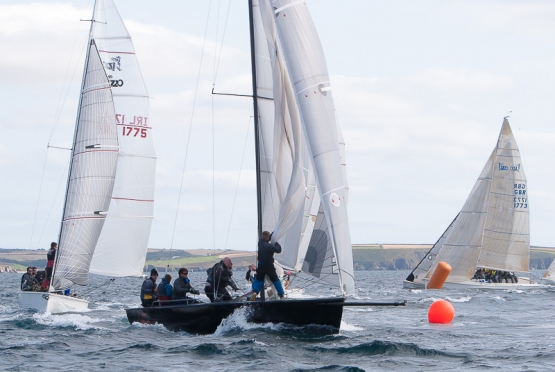
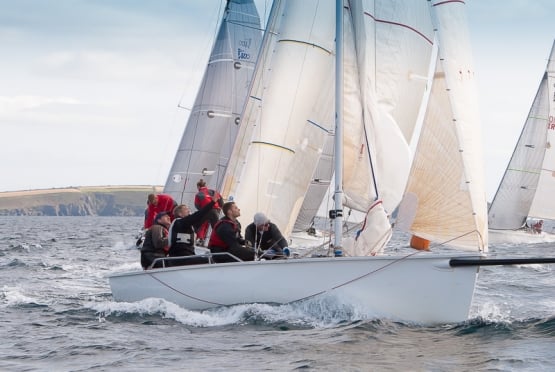
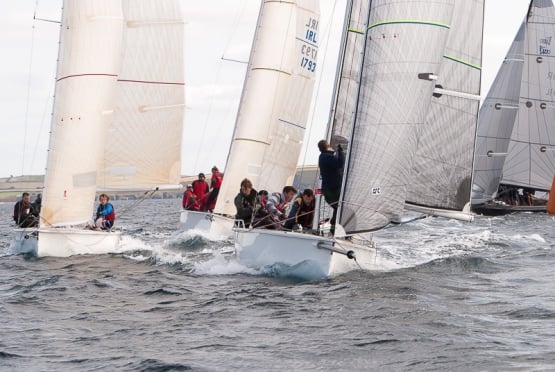
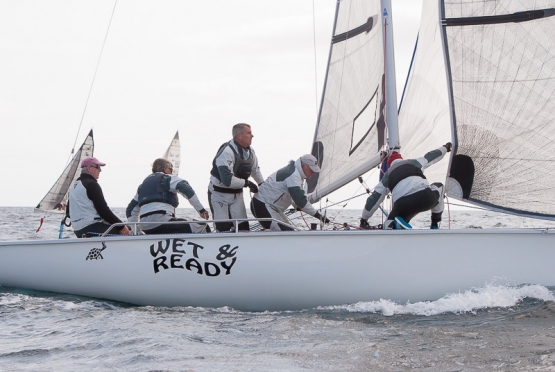
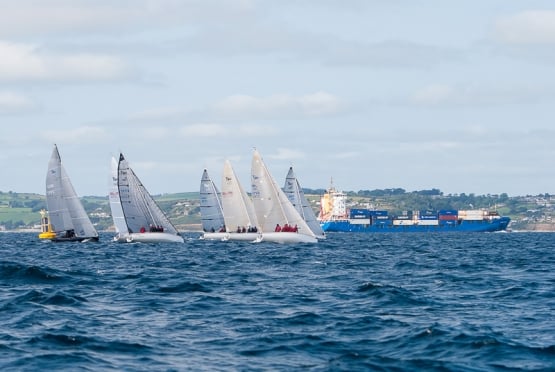
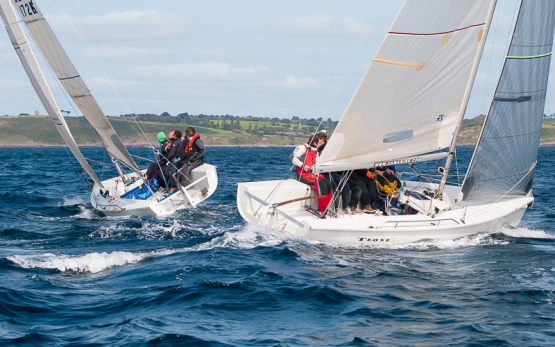
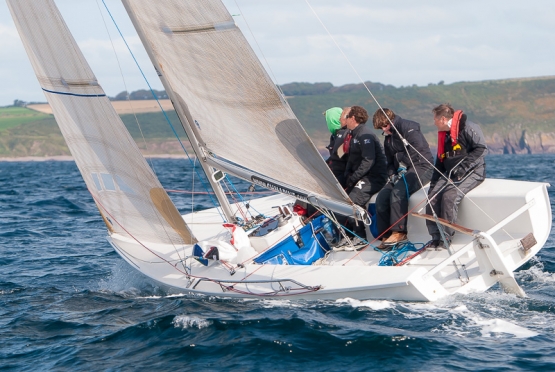
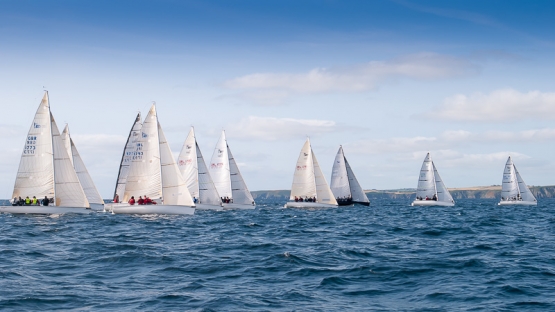
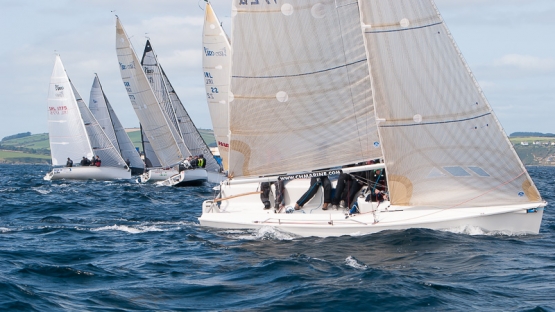
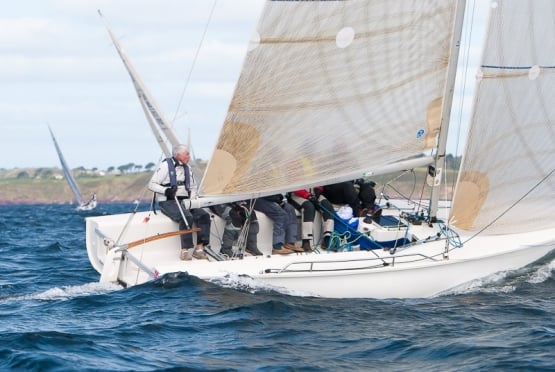
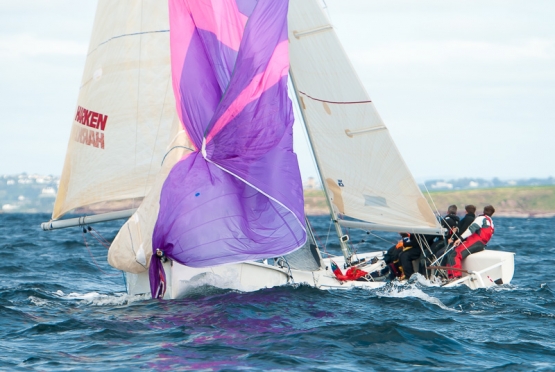
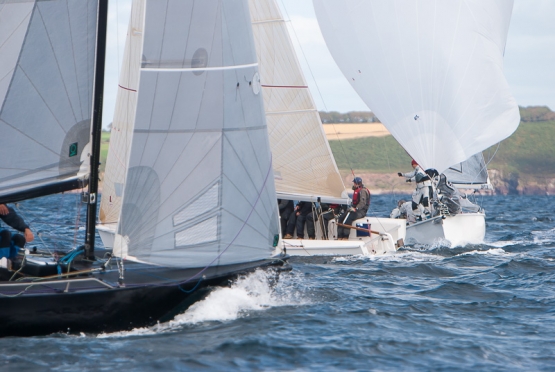
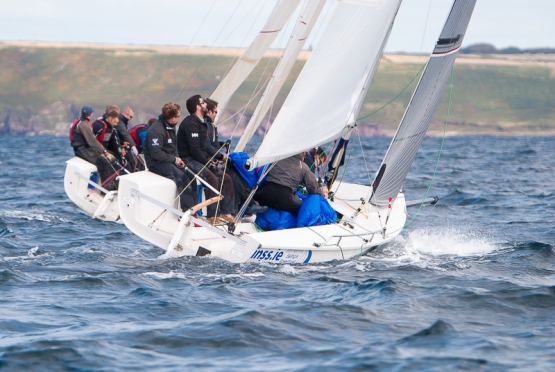
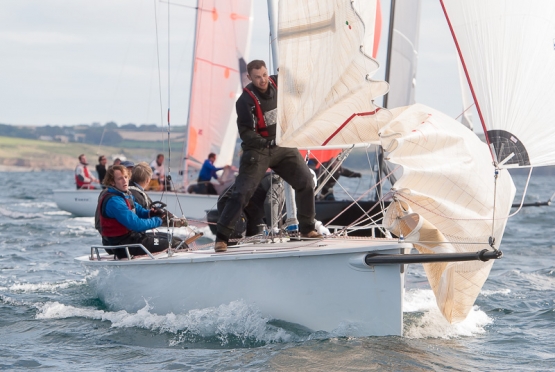
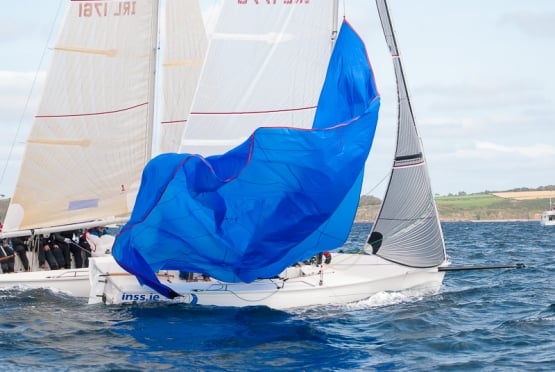
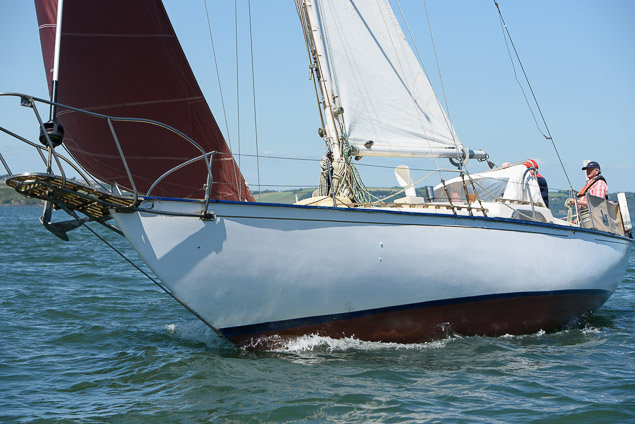
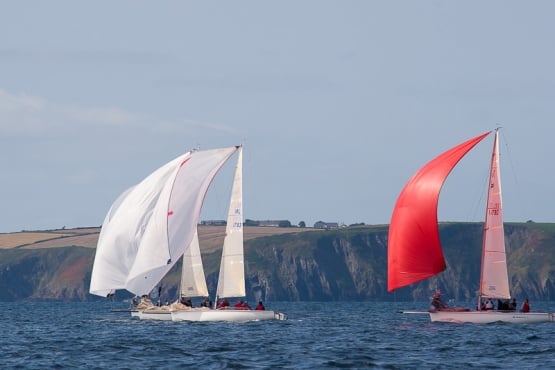
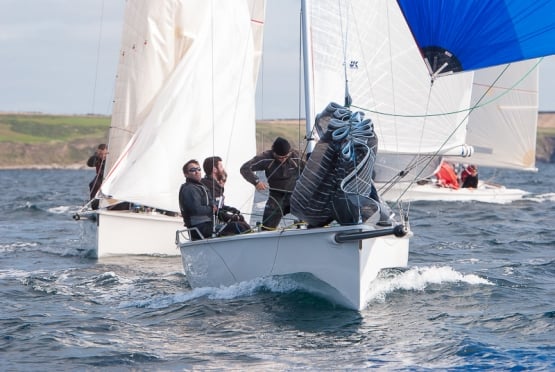
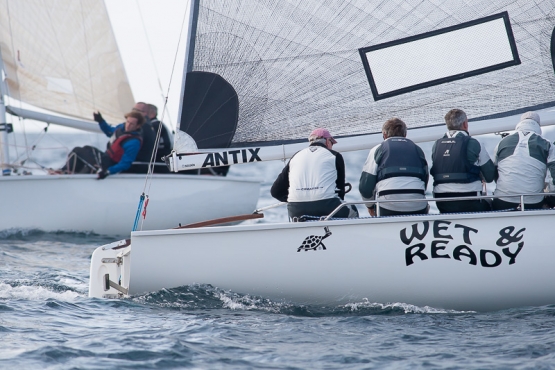
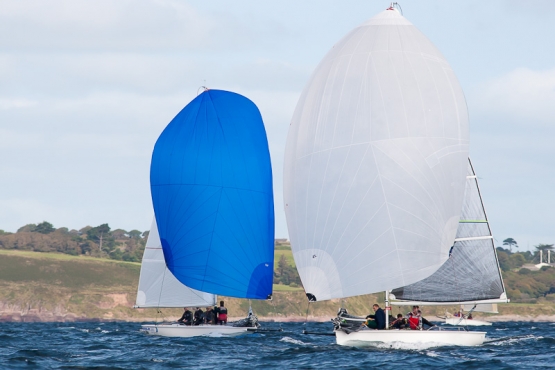
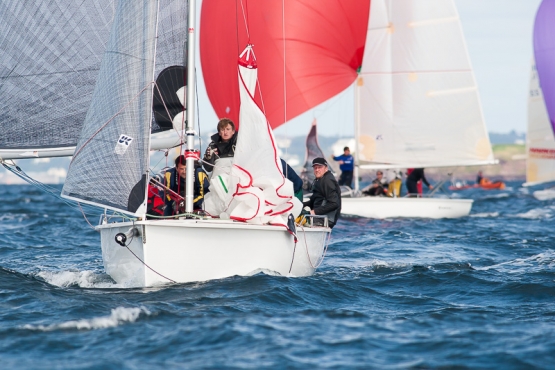
2k Cork Team Competes at Italian Team Racing Event
#teamracing – A Royal Cork 2K Racing Team skippered by George Kingston and Fred Cudmore compete at the Royal Club Tevere Remo in Rome today. After scoring fourth place at the last event at Yacht Club de Monaco, the team are ready for three days of intense racing.
The Cork team pictured above are: Fred Cudmore, George Kingston, Sarah O'Leary, Sonia Minihane, Phil O'Leary, Sean Cotter, Emma Geary and Ian McNamee
#optimist – A top Irish youth sailor has opted out of his place on the European Optimist team in favour of a place on the startline at the world championships in October.
Irish champion sailor Harry Durcan (14) from Royal Cork and Baltimore Sailing Club who came third at the trials this year has made the tough choice to go to the worlds on his own as the IODAI are not sending a team this year.
Harry has opted to go to the Worlds instead of the Europeans as you cannot attend both under Irish Optimist Dinghy Association (IODAI) rulings.
Normally the top five finishers at trials go to the Worlds but this year IODAI are not supporting a team because it's been held during school term.
The World Championships this year are on in San Isidro, Buenos Aires, Argentina in October. Durcan's preparations will be to train with the Irish 2014 Optimist European Team from now until the European event in Dun Laoghaire in order to help them and himself. He will also attend all the Irish regional events. He then plans to train with the Danish Team and their coach Dennis Passke for the week before the Europeans in Dun Laoghaire. He will then travel to Weymouth for the British Nationals at the 2012 Olympic Games venue and from there to Germany for the German nationals in August.
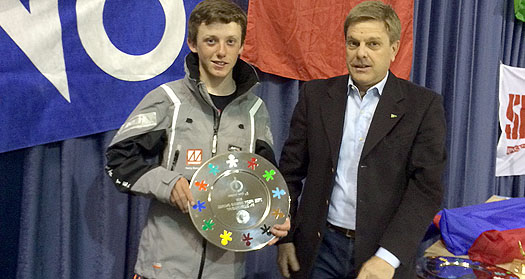
Harry picks up a top Optimist prize in Italy
He goes as the only Irish sailor to Argentina but has completed two world championships before, in Lake Garda in 2013 and the Dominican Republic in 2012.
Durcan also competed an event in Riva Del Garda at Easter and placed 9th out of 800 sailors, the best ever result for an Irish sailor at such an event. In March he was in Oman for an event with some of the top sailors from Europe. 'I am now looking forward to a fun Summer ahead and getting some training and racing under my belt' he told Afloat.ie
Irish Optimist Youth Sailing Season Already Underway
#optimist – Yesterday Optimist sailors in Cork and Dublin were packing a punch into training in Cork and Dublin writes Claire Bateman. Royal Cork YC members of the Irish Optimist Squad were training at Howth Yacht Club and other RCYC squad members were training in Cork Harbour where they presented a spectacular sight as they appeared to be literally flying up and down and around in a stiff W/SW bitingly cold breeze in the immediate vicinity of the club.
Next week Optimist training will move to Baltimore for the mid term schools break and sailors will spend the full week undergoing rigorous coaching and workouts. It also provides the opportunity for a mid term family break for other members of the families as they generally move to Baltimore for the week.
This is an extremely important year for the Optimist Class as the European Championships 2014 will take place in Dublin. A decision has been taken not to compete in the World Optimist Championships 2014 but to concentrate wholly on the European Championships. Obviously the venue is very accessible for the Irish sailors and will give some extra competitors the chance to participate where they might not have been able to access the Worlds at some far lung venue.
The Royal St. George Club will host the Europeans from July 12th to 20th, 2014 and credit for securing the event for the country must be given to Frank O'Beirne of RStGYC. This means that Ireland as the host nation will have fourteen places instead of the usual seven.
Following the Worlds, Optimist action will move on to the CH Marine Irish Optimist Nationals and Open Championship to be hosted by the Royal Cork Yacht Club from August 14th to 17th, 2014.
Fools Gold Leads IRC1 at Royal Cork CH Marine League
#royalcork – Cork Harbour was alive with boats today with dinghies and cruisers writes Claire Bateman. On the water the Optimists were sailing their Cobbler League, the Lasers were sailing as were the 420's and also the Toppers and it was even possible to watch the Phil Morrison designed new National 18 prototype.
In the third day of the CH Marine League Race Officers were indeed fortunate to get in two races for the competitors as light winds were the order of the day with about 6 knots from the North. With a 3.5m tide and racing starting at the top of the tide it was essential especially for the Class 1, 2 and 1720 fleets sailing outside the harbour to sail the best course to get to the weather mark. But then it is factors like this that make sailing interesting.
Rob McConnell in Fools Gold did not have it all his own way in IRC 1 to day posting a second and a fourth but was able to discard the fourth while Jump Juice had a good first race taking the gun and is lying second overall, with Freya lying third.
Things are very tight at the top of IRC2 with Bad Company on 9 points with Waterford raider Shane Statham in Slack Alice just one point adrift but Paul Tingle got Alpaca going well today and took the gun in the first race in that class.
IRC 3 and Sigmas sailed the inner harbour course today and Kieran Collins' Tambourine leads from Finbarr Dorgan's No Half Measures while in the Sigmas Wendy and Clem McElligott had two firsts today and now top the leaderboard in that class.
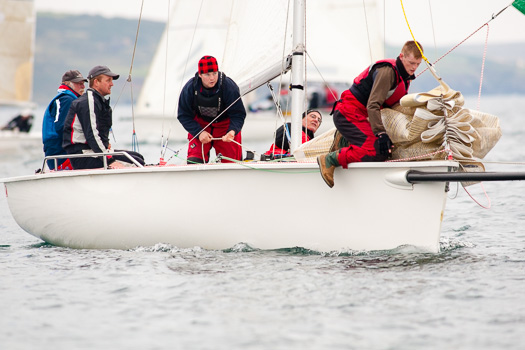
1720 racing. More photos below. Photo: Bob Bateman
The eight boat 1720 fleet is led by Denis Murphy's Aquatack on 9 points, while Salve Marine Racing, with a little bit of help from tactician Anthony O'Leary, is just one point adrift . In Class 4, Alan Mulcahy's Sundancer leads on 5 points from Shelley D while the positions are reversed in ECHO. Finally, in IRC Whitesail Michael Wallace's Felix is getting the better of Conor O'Donovan's Xtension but it was Tom McNeice who took the two wins today.
Racing continues next Sunday with FG at 11.55
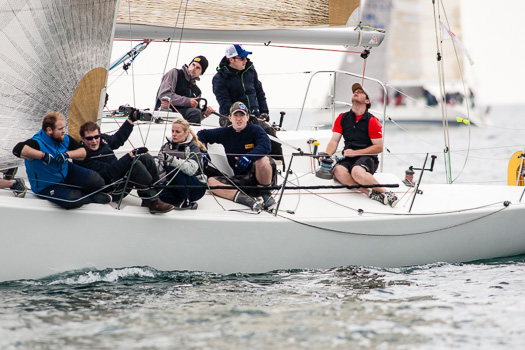
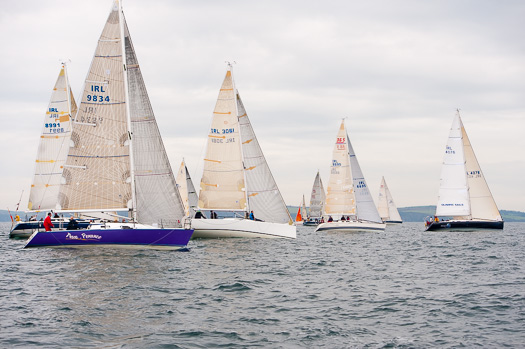
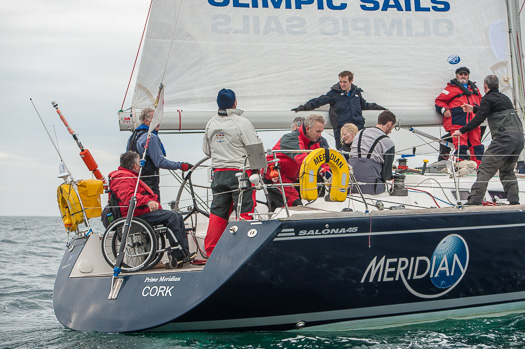
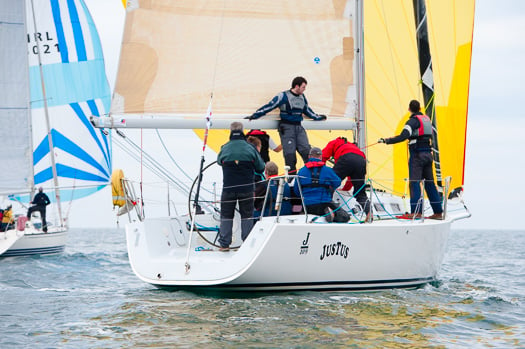
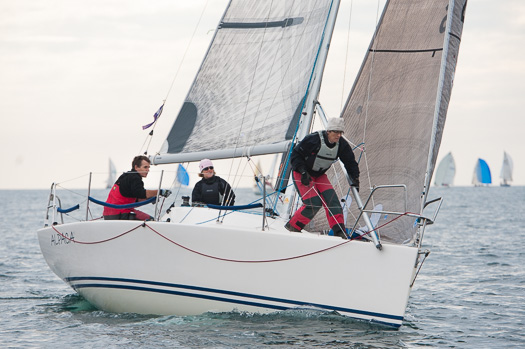
#1720 –A single point separates first and fourth place overall after two high speed races of the CH Marine sponsored 1720 National Championships writes Claire Bateman.
Defending champion Mark Mansfield, who is always formidable in strong winds, lies fourth overall after counting a 2 and a 4 in the 15-boat fleet while Finbarr Jeffers leads from Anthony O'Leary on an equal five points. Scroll down the page for more photos and results.
It was well worth waiting for the winds to abate in Cork harbour yesterday because by 5pm the first race of the championships got off to a cracking start in blustery high winds
Racing over windward leeeward course on the Eastern Bank off Aghada and with the weathermark close to the Spit the fleet enjoyed two great races and provided plenty of thrills and spills with even the heavy weather experts, Anthony O'Leary and defending champion Mark Mansfield both experiencing broaches inspite of the use of smaller jibs and kites. Photos of the action below.
| Series Place | Sail No | Boat | Owner | Series Points |
|---|---|---|---|---|
| 1 | IRL1750 | Wahoo | Finbarr Jeffers | 5 |
| 2 | IRL1843 | Wet n' Black | Anthony O'Leary | 5 |
| 3 | GBR1722 | Ricochet | Steve Forester-Coles | 6 |
| 4 | GBR1726 | Gut Rot | Terence English & Mark Mansfield | 6 |
| 5 | IRL1790 | T-Bone II | Tom Durcan & Clive O'Shea | 8 |
| 6 | IRL1804 | Aquatack | Denis Murphy | 13 |
| 7 | IRL1807 | Red Penguin | Robert O'Leary | 14 |
| 8 | IRL1785 | Primeline | John Crotty | 15 |
| 9 | GBR1771L | Cosmic | David Townend | 20 |
| 10 | IRL180 | Bad Company | F Desmond/M Ivers/P Horgan | 21 |
| 11 | IRL1797 | Dark Side | Bryan Hassett | 21 |
| 12 | IRL1722 | Smile N Wave | Jim Griffiths / Ben Cooke | 22 |
| 13 | IRL1724 | Boomerang | Tom Hegarty/Bob Stokes | 26 |
| 14 | IRL1760 | Let the Good Times Roll | Robin & Ben O'Mahony | 28 |
| 15 | IRL1755 | Live Wire | James & Mick McKenna | 30 |


























